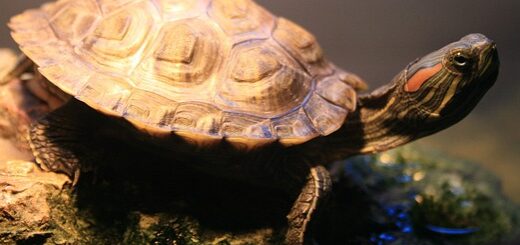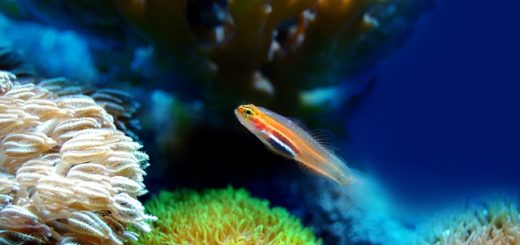Call for Concept Notes for Regional Innovation Collaboration Projects in Eastern Africa- BioInnovate Africa
1.0 Background
BioInnovate Africa was established in 2010 with support from the Swedish International Development Cooperation Agency (Sida). It is implemented as a regional science and innovation-driven programme of the International Centre of Insect Physiology and Ecology (icipe) since October 2016. icipe is headquartered in Nairobi, Kenya. BioInnovate Africa participating countries include Burundi, Democratic Republic of the Congo (DRC), Ethiopia, Kenya, Rwanda, South Sudan, Tanzania, and Uganda. BioInnovate Africa enables scientists in these countries to translate biologically based ideas, inventions and technologies into practical uses that benefit society. This is crucial as the countries accelerate efforts towards achieving the Sustainable Development Goals 2030, and search for more sustainable solutions that conserve biodiversity, reduce carbon emissions, and mitigate and help the region adapt to climate change.
2.0 The Call
This Call is intended for scientists from universities, research institutes, and government agencies to work jointly with their counterparts in the private sector to co-develop value added products (goods and services) from biological resources. Value added products may be from agricultural produce, other biological materials including insects, microbes and animals or biological waste.
2.1 Thematic areas
Concept notes submitted should address any of the following BioInnovate Africa thematic areas:
a. Value addition to agro-produce and other biological resources
This includes new food production and processing methods that promote circular food systems; new ways of reducing post-harvest losses; novel green industrial chemicals; biomaterials for packaging and construction; and biological fuels. Value addition may also include use of digital tools and enabling technologies such as artificial intelligence and machine learning in conserving biodiversity and ensuring sustainable supply and regeneration of biological resources.
b. Biological waste conversion
Biological waste conversion involves methods of turning agro/biowaste and other feedstock into useful renewable products including product recovery from solid waste, using insects as biowaste converters, watershed preservation, and wastewater treatment and reuse and bioenergy production. Other useful products may include improved feed from waste, bioprocessing using selective biocatalysts/enzymes, or safe green chemicals, agroecological practices and community-based biorefineries that diversify and strengthen value chains.
c. Biologically based healthcare products
This includes biopharmaceuticals and diagnostics for key human diseases affecting the region. It also involves use of indigenous knowledge and standardized dosages, which make traditional medicine safer and more efficacious. Other products may include biologically based topical applications for skin care that are derived from the region’s biodiversity and would target niche markets or benefit from fair trade initiatives for poorer communities in the region.
2.2 Key activities and deliverables
The key activities and deliverables expected for this grant support revolve around developing innovative products or product delivery systems, and piloting or demonstrating novel technologies with good prospects for business and the market. Additionally, policy, technoeconomic and market analyses are integral activities of the project to assess the likelihood of successful commercialization.
2.3 Eligible applicants
Eligible applicants are scientists working as employees of legally recognized universities, research institutes or firms (private sector companies) actively operating in any of the eastern African countries of Burundi, DRC, Ethiopia, Kenya, Rwanda, South Sudan, Tanzania and Uganda. Furthermore, the scientists must be resident in the aforementioned countries. For purpose of this call, “scientist” includes all individuals qualified in and/or creatively practicing physical, natural and engineering sciences, medicine, business, social or other related discipline. Furthermore, a scientist and the organization he/she represents are jointly regarded as a “project partner” in a collaborative project.
2.4 Team composition
The grant will support scientists working regionally across countries and collaborating with private sector companies, the latter being the route to commercializing the innovative bio-based products. A project team shall comprise at least three and not more than five organizations from at least three BioInnovate Africa eligible countries. The organizations must be different and independent of each other. At least one of the organizations should be a private sector company actively involved in commercial activities. A private sector company in the context of this call, includes private companies, corporations, for-profit farmer cooperatives and social enterprises that have commercial operations. The private sector partner(s) in a project team must commit to and be actively involved in the design of the project and in taking the technology or product further towards commercialization, e.g. through direct use of the technology, production or marketing of the product. Female scientists are highly encouraged to participate in the team.
Scientists from other regions of Africa and other organizations around the world may also participate in this Call, but only as collaborators in the project. They do not form part of the core project team, and should not be listed as co-applicants. Their role and contribution in the project should be clearly described in the concept note/proposal.
The project team should make a provision for embedding MSc and PhD students later on in the project. Students will not only provide research support, but also acquire relevant skills on how to design and implement innovation projects. The students must have already registered for MSc or PhD study in a university in a BioInnovate Africa eligible country at the time of being recruited in the project. Students receive research costs only and a stipend for 12 months for masters and 24 months for PhDs. The stipend amount to be paid shall be based on the official rates of the university where the student is registered. Students shall be responsible for their university tuition fees and shall be expected to meet the said tuition fees from other sources. Students should also have a clear plan with their supervisors to ensure that the BioInnovate Africa support they receive is only to complement their academic work, and to give them opportunity to gain advanced practical skills. Students and their academic supervisors take full responsibility for the student’s academic performance. Female students are highly encouraged to participate in the projects.
2.5 Grant size and duration.
Each project will be funded up to US$ 1,000,000 (one million only) for a maximum period of three years. Each project partner shall receive a minimum of US$ 200,000 (two hundred thousand only).
2.6 Matching fund support
Each project partner should be willing and commit to provide matching funds of 15% of the total funds allocated to them. The matching funds will be over and above the grant funding, and shall be spent within the contributing project partner organization to support project activities. Matching funds may come from social impact investors, relevant government agencies, private sector or other sources. The matching funds may be cash or in-kind contribution of staff time, laboratory space, infrastructure, other institutional support, etc., or both.
3.0 Evaluation
3.1 Selection process
When the concept notes are received, they will be automatically assigned registration numbers. The concept notes will then be screened by the BioInnovate Africa Programme Management Office to ensure that they are complete and meet the eligibility requirements. Incomplete concept notes and those which fail the eligibility check will be automatically disqualified.
An independent expert group of three to five individuals will evaluate the concept notes that pass the eligibility screening and prepare a shortlist that should, with the approval of the BioInnovate Africa Programme Advisory Committee (PAC), be invited to proceed to the next stage of full proposal development. Applicants will be notified if they have been shortlisted or not. Shortlisted applicants will be invited to proceed to the next stage of developing their concept notes into full proposals.
Each full proposal developed will be evaluated by three independent experts. The PAC will then convene to make the final decision on proposals to be funded based on the external evaluation comments on each proposal and their own assessment of the quality, feasibility, and potential impact of the proposal.
3.2 Evaluation criteria
The concept notes (and full proposals) will be evaluated using the following criteria. Each criterion is marked out of 10 points.
| NO | Criterion |
| 1 | Regional relevance or benefit of the proposed project |
| 2 | Innovativeness of the proposed solution (scientific and technical aspects) |
| 3 | A well-articulated need that the solution will address |
| 4 | Expected impact or potential market of the proposed solution |
| 5 | Environmental sustainability of the project, its contribution to carbon emissions reduction, biodiversity conservation and ecosystem services improvement |
| 6 | Team composition and motivation of the team members (gender balance in the team is highly encouraged) |
All decisions of the BioInnovate Africa PAC on the concept notes/full proposals are final and shall not be subject to further claims or revisions. Furthermore, the PAC reserves the right to revoke its decision on a selected concept note if it is established that the information provided by the applicant is false.
4.0 Ethical issues
In the process of preparing the project grant application, the project team is obliged to observe ethical principles and rules and describe how ethical issues in the application will be addressed. The applicant should indicate plans to obtain ethical approval from relevant bodies, if the project application involves human or animal subjects.
5.0 Key requirements
Applicants must submit the following:
a. A fully completed concept note of minimum seven and maximum nine pages including references. The concept note should be written in Times New Roman font, size 12, margins normal (2.54 cm for top, bottom, left and right margins), and orientation portrait.
b. Proof of legal status of the organization, e.g., a certificate of registration or incorporation, statute, gazette, etc. for each project partner.
c. The latest audited financial statement for each project partner or a commitment to submit if the concept note is shortlisted.
d. Signed letter of support from the head of the organization of each project partner.
e. Two-page CV of each project team member.
6.0 How to apply
6.1 Application form:
Applications should be made in English using the application template available at
http://grants.bioinnovateafrica.org/documents/Final%20Template%20for%20Concept%20Notes%2020052022.docx
6.2 Online submission
Complete concept notes (in English) should be submitted online via http://grants.bioinnovateafrica.org/forms/call_for_regional_innovation_collaboration_projects.php. The document should be saved in doc, docx, or pdf. The maximum file size accepted for any single file is 10 MB. Once submitted, no changes can be made to the application.
6.3 Submission deadline
The deadline for receiving all concept notes is Tuesday, 19 July 2022, no later than 23:59 hours, East African Time. Access to the online submission system will be closed for applicants after the deadline.
6.4 Conditions for submission
By submitting a concept note the applicant agrees to the following:
a. to abide by all rules for participating in this call process as outlined in the call and related documents.
b. that the BioInnovate Africa PAC decision on the concept note is final.
c. that if successful, the names, and organization of affiliation of members of the project team, and title, objectives and total budget of the project will be shared on the BioInnovate Africa web site (The applicant should notify BioInnovate Africa Programme Management Office if there are any proprietary and confidential business information, which should not be publicly shared).
d. that the names of independent expert evaluators shall be kept confidential and will not be released to applicants under any circumstances. However, feedback based on the review comments and the BioInnovate Africa PAC will be provided to the applicant.
e. that a prospective applicant can participate in and make only one application in this Call category, but may participate in other Call categories of BioInnovate Africa (to be announced later); and further that an applicant who is project team Leader in a project in this Call category cannot lead a project in the other Call categories.
f. that the call timelines and schedules of fund disbursement to selected project proposals may be adjusted without prior notice in the event of uncertainties in funding.
7.0 Important dates to watch
1 Call open 25 May 2022
2 Call closed 19 July 2022
3 Shortlisted concept notes 15 August 2022
4 Full proposals submitted 12 September 2022
5 Announcement of selected proposals 21 October 2022
8.0 Further information
Please, visit http://bioinnovate-africa.org for more information about BioInnovate Africa and this call or contact the BioInnovate Africa Programme Management Office on email: bioinnovate@icipe.org or telephone +254 (20) 8632433 for any inquiries about the call.
Information webinars on this Call will be held on: 7 July 2022; 10:00-11:00am EAT.








